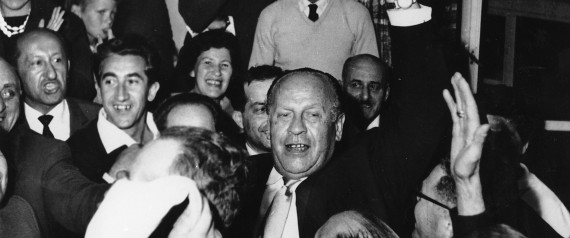Amid news of the repeated brutalities committed by Boko Haram in Africa, the Taliban in Afghanistan and the Islamic State throughout the Middle East, it’s easy to presume that the 21st century is experiencing violations of human rights and dignity at a pace faster than ever before.
Perhaps. Or perhaps the images make us more aware of man’s inhumanity to man, still unbridled and with a persistent sense of impunity.
As individuals who have seen first-hand the devastation, past and present, behind images, we are convinced that the truth is more complex, but also more hopeful.
We have come together on the centenary of the modern era’s first genocide — a crime committed by the Ottoman government against its own Armenian population — to say that it’s time we own the human suffering in our midst, both past and present, and to act to restrain such violence as consistently and publicly as the perpetrators.
Even as politicians and societies debate actions to protect man’s basic right to life, the rest of us can — we would say must — take center stage in international discourse, harness the hard lessons of past atrocities, and take pride in our ability to overcome, to thrive and to salute those who have chosen goodness and humanity over violence and evil.
How can remembering past injustices help us tackle the diverse human rights abuses today?
The tortured tales of Armenians who survived deportation and massacre in the early 20th century genocide, the Jews who outlived Hitler and his butchery, the Rwandans who endured unspeakable violence and began to build again, the people of Sudan who continue, against the odds, to resist both man-made and natural calamities — these stories teach us that no period of time, no region and no religion are immune to the political and social forces which can transform neighbors into perpetrators.
Forgetting man’s past atrocities or ignoring those happening, now, today, in too many places around the world, is both callous and short-sighted, because it permits violence to happen again, often, and closer to home. That is bad enough. But it’s equally hazardous to ignore the astonishing and perilous acts of human courage that negate, undo, reverse the violence and uphold our rights and dignity as humans. By forgetting, we relinquish the record of human history to those who have destroyed, not those who have saved and built.
Oskar Schindler, memorialized in Steven Spielberg’s classic film, showed us that one person of integrity can do battle for the humanity of hundreds.
Karen Jeppe, a 27-year-old missionary when she left Denmark, came to help Armenian women, orphaned or abducted in the forced desert marches that became the killing fields of the Armenian Genocide. She succeeded in saving and supporting some 2,000 of the 200,000 whose fate was death.
A century ago, a group of generous and caring people met in New York’s Plaza Hotel to raise $117 million (equivalent to $2.7 billion today) to send volunteer doctors and nurses to aid Armenian refugees. Their assistance saved scores from starvation and death. Today, the descendants of those survivors are scientists, ministers, artists, athletes, businessmen and educators. They live, with gratitude for the kindness and humanity of strangers.
In 2006, a Denver businessman and two Sudanese refugees developed the Nuba Water Project to bring clean water to save the lives of people living in remote areas of Sudan, persecuted by their own government.
These stories inspire hope because they reveal that despite the imperative of those same political and social forces that wrought destruction, sometimes neighbors became not collaborators, but rescuers; saviors even, since the individual actions of single human beings have given life where there was to be only death.
Our new 100 Lives initiative will recognize and amplify the acts of redemption and salvation by people anywhere. Every year, 100 Lives will bestow a global humanitarian award — The Aurora Prize for Awakening Humanity — of $1 million. This initiative and the grant will contribute to the global efforts to raise public consciousness and encourage action to protect the most vulnerable, by rewarding those whose work demonstrates a commitment to that goal.
An anniversary of a genocide will have meaning only if we collectively work to thank those who resisted and fought back then, as well as those who withstand and fight back now. We will honor and support them, not just by thanking them but also by joining them.



















































